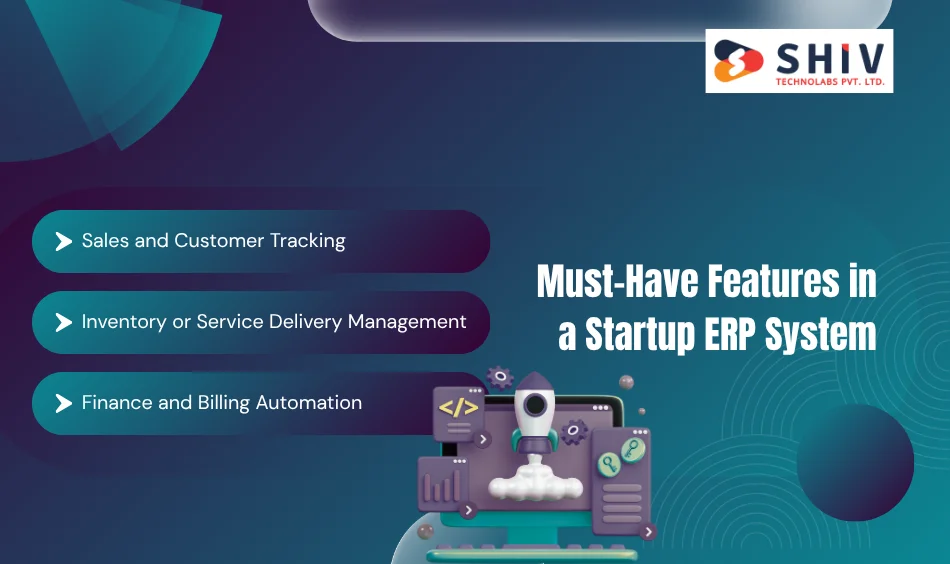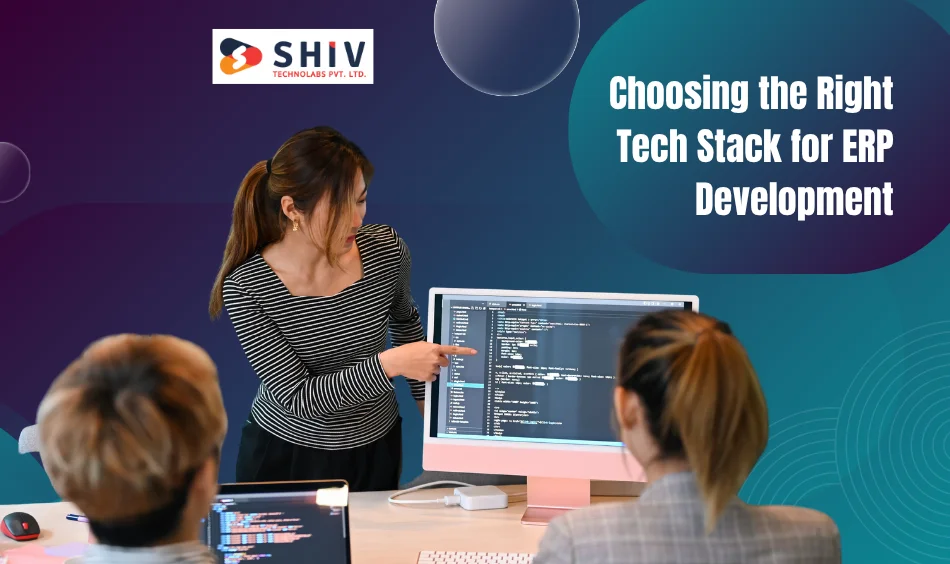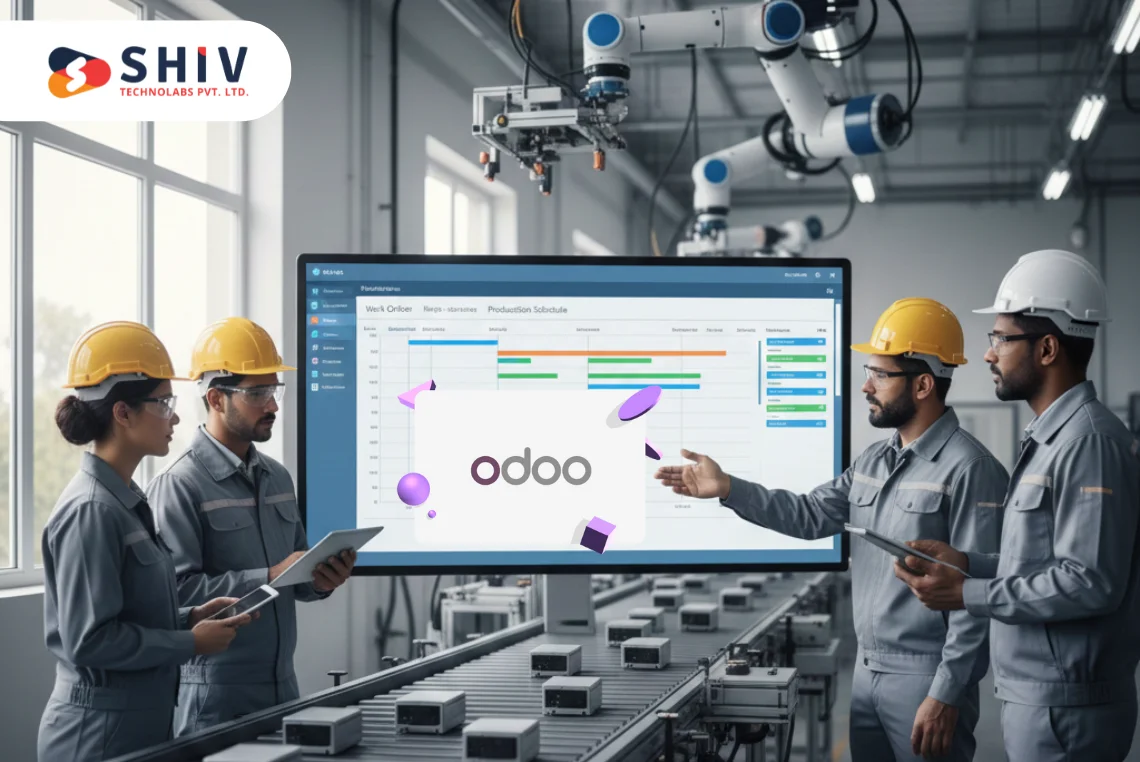Table of Contents
Startups often begin by using whatever tools they can find quickly. You might use Google Sheets to manage inventory. You might track tasks in Trello. Stripe handles your payments. Slack keeps the team talking. But none of these tools connect. As your startup grows, switching between them creates confusion.
That’s why many businesses turn to a Custom ERP system for startups. Instead of forcing your team to jump between apps, ERP gives you one platform where everything works together. The report says the ERP market will reach $117 billion by 2030. Much of this growth will come from startups and small businesses that need systems they can scale.
In this guide, we will cover how to plan a custom ERP systems for your startup. You will learn how to select your tech stack, estimate costs, set a timeline, and collaborate more effectively with your development team.
Why Startups Need a Custom ERP System Early On
ERP systems are no longer just for large companies. Startups with small teams often need them too. As your daily operations become more complex, utilizing a custom ERP saves you time and effort. Planning one early is always better.
The Tipping Point: From Spreadsheets to Real Systems
Startups usually begin by using spreadsheets. They are easy at first. However, once your team spends too much time updating the same data repeatedly, it becomes a problem. This is the moment to transition to an ERP system. It will handle repeated tasks automatically. It will also keep your data updated across every department without requiring manual updates.
Problems with Generic SaaS Tools
SaaS tools often work well initially. But most of them are not built for your specific workflows. They force you to follow their rules. They also do not connect easily with other tools. This causes problems when data becomes stuck in one place, and you end up fixing issues manually.
When Is the Right Time to Invest in ERP?
In case your startup deals with multiple products, grows in terms of the customer base, or addresses orders by many steps, you require ERP system planning. When you invest in ERP prior, you do not have to hire extra people just to manage operations. The system keeps things under control as you scale.
Must-Have Features in a Startup ERP System

Each startup has different needs. But most will require some basic ERP features to get started. These core modules help you run your operations more smoothly. Here are some of the top ERP features for startups:
Sales and Customer Tracking
Your ERP should assist you in managing leads, tracking deals, and closing sales. You can connect it to your CRM or create a simple system to manage customer information, communications, and sales forecasts. In this manner, you will not have to move between various applications.
Inventory or Service Delivery Management
If you sell products, you need to keep track of stock. If you sell services, you need to monitor delivery milestones. A good ERP system shows real-time order status, product availability, or service progress. Your clients get timely updates, and you stay informed.
Finance and Billing Automation
An ERP should handle invoicing, recurring billing, and payment reminders. It should also automatically generate GST or tax reports. This eliminates the need for additional financial tools and saves time at the end of every month.
Task Assignments and Team Roles
Your system should assign tasks to the right people. It should also ensure that only certain individuals have access to specific data. For role-based permissions, the team members only access what they require.
Analytics and Reporting
It does not matter how much data you have when you cannot use it to make a decision. Your ERP must provide you with dashboards that indicate the sales performance, margin, and customer retention rates. Clear reports help you gain a deeper understanding of your business.
Choosing the Right Tech Stack for ERP Development

Your tech stack will determine the speed, security, and scalability of your ERP system. Line up with your development team to choose the finest tools.
Backend Options (Node.js, Django, Laravel, etc.)
- Node.js: Easy to use and quick. Does well on real time dashboards and APIs.
- Python: Django: Safe and fast to build. Performs admirably on data rich systems.
- Laravel (PHP): Neat and straightforward. It is also good to build MVPs fast.
Choose the one that suits according to the skills of your team and your long term objectives.
Frontend Frameworks (React, Vue.js, Angular)
- React: Flexible and fast. Works well for interactive dashboards.
- Vue.js: Simple to use and easy to learn. Has solid support from developers.
- Angular: Strong for large apps with many features and data points.
Database Choices (PostgreSQL, MongoDB, MySQL)
- PostgreSQL: Stable with structured data and complex queries.
- MongoDB: Manages dynamic data that cannot fit into tables conveniently.
- MySQL: A reliable choice with small to middle-size ERP systems.
Cloud Hosting (AWS, Azure, DigitalOcean)
- AWS: Scales easily and offers many global services.
- Azure: Works well if your startup already uses Microsoft tools.
- DigitalOcean: More affordable. Easy to set up and manage for MVPs.
Also read: How Custom ERP Development Transforms eCommerce Businesses
Cost of Developing a Custom ERP System for Startups
Now let’s look at the cost. ERP development is not a free service but it will not cost your pocket more when you plan effectively. Separate the expenses into easy segments so that you can choose what matters most.
Core Cost Components
- Planning & Design: This covers system architecture, how work flow will be designed, and the appearance as well as feel of the software.
- Development: This involves programming backend, frontend, APIs and logic of every module.
- Testing: Testers find bugs, check performance, and handle special use cases.
- Deployment & Support: This includes setting up the system on the cloud, fixing post-launch issues, training users, and writing guides.
Example Cost Ranges (USD)
| Startup Size | Estimated Cost | ERP Type |
|---|---|---|
| Pre-Seed | $8,000–$15,000 | MVP ERP |
| Seed/Series A | $15,000–$35,000 | Modular ERP |
| Scale Stage | $40,000+ | Full-featured ERP |
These figures are only indicators. The price you pay will depend on the number of modules you want to build, the nature of the integration you require, and the cost your team will charge.
Timeline: How Long Does ERP Development Take?
The ERP system does not come overnight. When you fail to plan effectively, the schedule might go out of line. This is what you can expect.
MVP Timeline (6–10 Weeks)
In 6 to 10 weeks, you can go live when all you want are the basic modules, such as sales tracking, billing, and task management. This is well-suited for start-ups that are at an early stage.
Modular Build (3–6 Months)
If you require additional features, such as inventory management, customer portals, and finance dashboards, the timeline is 3 to 6 months. This allows for sufficient time to test and improve.
Factors That Delay ERP Projects
- Changing the scope during the project
- Not defining data flows clearly from the start
- Being slow in transferring data on old systems
- Creating a variety of third-party integrations prematurely
Before you start, make up your mind about what is important and do not add any other features during the process.
Tips to Work Smoothly With Your ERP Development Partner
Working well with your ERP partner can help you avoid costly mistakes. Here’s how to make the process easier.
Define Workflows Before Development Starts
Before coding begins, map out how your business operates. How do you go from a lead to a paid invoice? When does an inventory order get triggered? Clear workflows mean fewer mistakes during development.
Build in Phases, Not All at Once
Do not try to create the perfect ERP system in the first round. Focus on the most important features first. Test them. Get feedback. Then add new modules later. This approach saves time and gives you faster results.
Assign a Dedicated Internal Coordinator
Put someone from your team in charge of the ERP project. This person should understand your daily challenges, review the work, and keep the project moving forward. Your development partner will handle the coding, but your team must provide guidance on the direction.
Conclusion
Planning a custom ERP is not just about listing features or picking coding tools. It’s about building a system that will grow with your startup. A good ERP helps your team focus on real work instead of managing spreadsheets or jumping between apps.
When you plan it correctly, ERP can save you money on operations and reduce administrative work. It also helps you scale without breaking your workflow. Shiv Technolabs is the premier ERP development company, leading the way in development and delivering a wide range of ERP solutions tailored to your business needs.
At Shiv Technolabs, we have successfully delivered top-notch ERP development for startups that fits their needs. We do not just copy generic software. We design systems around how your business works.
- Built startup ERPs in less than 90 days
- Created billing systems, order management, and customer portals
- Integrated real-time tools like Stripe, Twilio, and AWS
Let’s build the ERP system your startup truly needs.






















